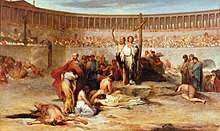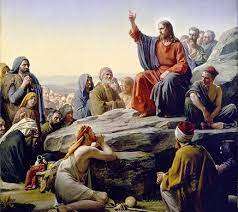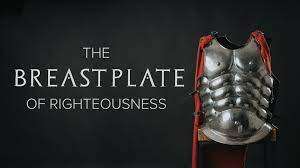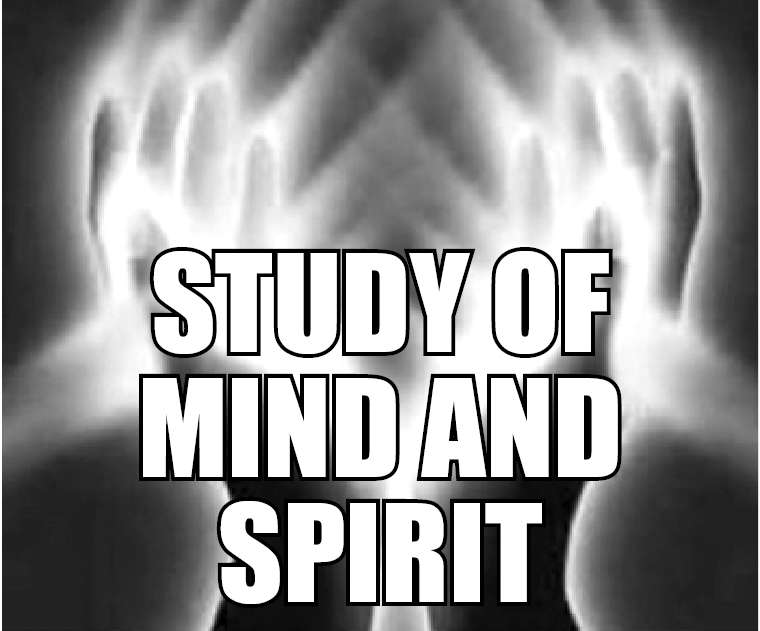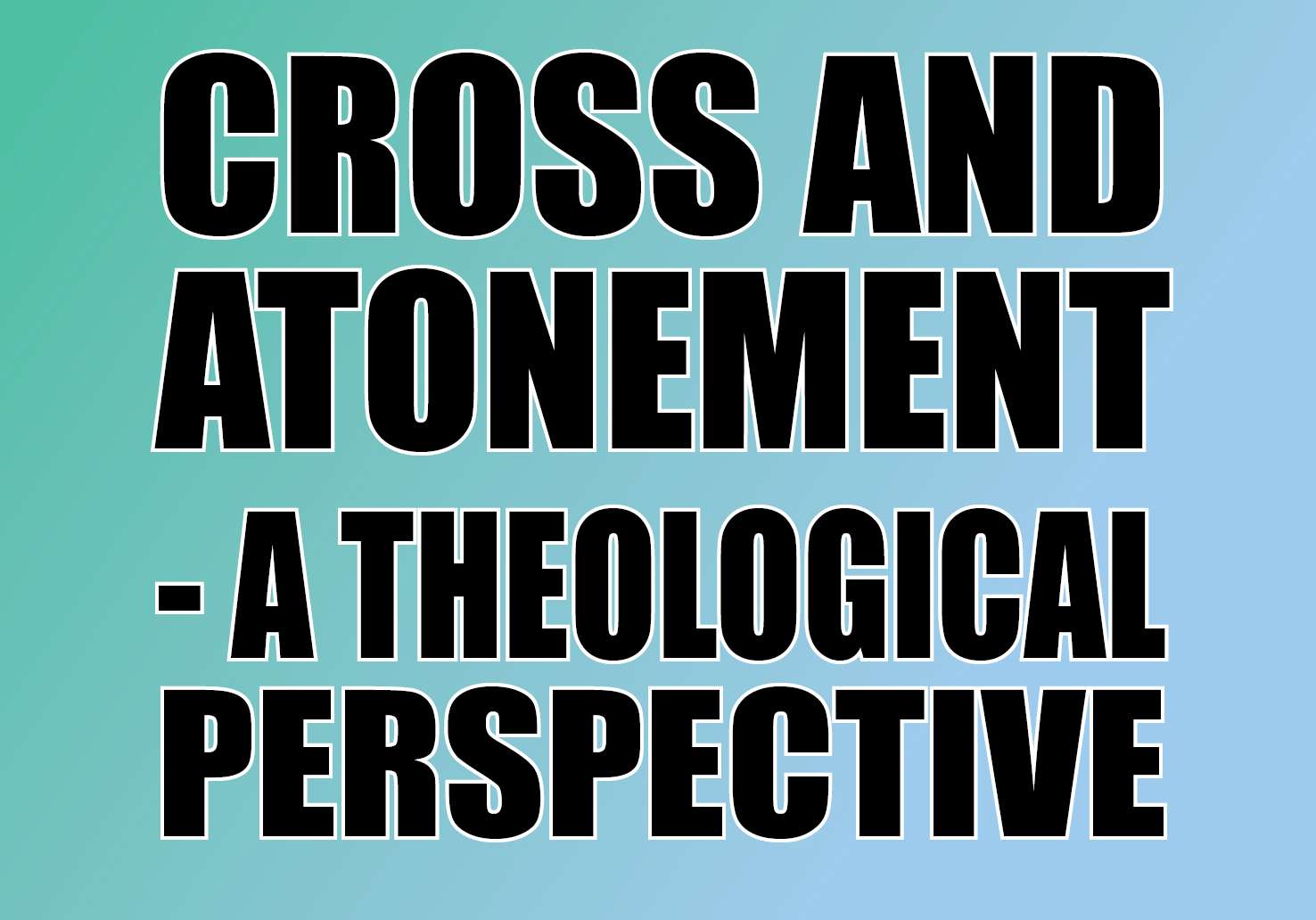

Holy Spirit Who Convicts Our Sins (As Promised by Jesus)
Dr. Domenic Marbaniang
“And when He has come, He will convict the world of sin, and of righteousness, and of judgment” (John 16:8)
This does not mean that the world will feel convicted about their sin and turn to Christ; rather, it means that the presence and work of the Holy Spirit in the Church today makes it totally impossible for the world to produce a case against faith in Christ.
The parable of the rich man and Lazarus made it crystal clear that the very presence and testimony of Moses and the prophets left the Jew no excuse for unbelief -- “If they hear not Moses and the prophets, neither will they be persuaded, though one rose from the dead.” (Luke 16:31). The unbelieving world that knew Moses and the prophets stood convicted though unpersuaded and unable to believe and live the message of the Old Testament. How much more severe would that conviction be for those who have heard the voice of the Son of God by whom God has spoken to us in these last days? (Heb. 1:1,2).
Moreover, Christ said this about the Holy Spirit: “All manner of sin and blasphemy shall be forgiven unto men: but the blasphemy against the Holy Ghost shall not be forgiven unto men. And whosoever speaketh a word against the Son of man, it shall be forgiven him: but whosoever speaketh against the Holy Ghost, it shall not be forgiven him, neither in this world, neither in the world to come.” (Matt. 12:31,32).
Obviously, the conviction by the Holy Spirit through His testimony in and through the Church is final, binding, and inescapable.
“How shall we escape, if we neglect so great salvation; which at the first began to be spoken by the Lord, and was confirmed unto us by them that heard him; God also bearing them witness, both with signs and wonders, and with divers miracles, and gifts of the Holy Ghost, according to his own will?” (Heb. 2:3,4)
The Convicting Work of Christ
If I had not come and spoken unto them, they had not had sin: but now they have no cloke for their sin. He that hateth me hateth my Father also. If I had not done among them the works which none other man did, they had not had sin: but now have they both seen and hated both me and my Father. (John 15:22-24)
Christ's teachings and works reproved the world of sin. This does not mean that they were sinless before Christ came. They were sinners but the sin was not exposed and proven. The same was the case also before the coming of Moses' Law as Paul notes: “For I was alive without the law once: but when the commandment came, sin revived, and I died” (Rom. 7:9).
Now, while the Law was with them, there were those who were egoistic about their own righteousness and boasted as if they were more righteous than their forefathers who sinned against God. Jesus rebuked them for this attitude by stating that they were as guilty as their forefathers.
Woe unto you, scribes and Pharisees, hypocrites! because ye build the tombs of the prophets, and garnish the sepulchres of the righteous, and say, If we had been in the days of our fathers, we would not have been partakers with them in the blood of the prophets. Wherefore ye be witnesses unto yourselves, that ye are the children of them which killed the prophets.
Fill ye up then the measure of your fathers. Ye serpents, ye generation of vipers, how can ye escape the damnation of hell? (Matt. 23:29-33)
Sadly, this attitude is not uncommon. There are many today who believe that they love Jesus and if they lived in Jesus' days they would not have crucified Him. However, when one sees them walking with malice, envy, jealousy, and hatred against their own fellowmen, one doubts if their confidence is justified. A few years ago, a number of respectable Christian ministers gathered together for a conference in which they decided to denounce pentecostalism and the gifts of the Holy Spirit as demonic. The name of the Conference was Strange Fire Conference comparing pentecostalism to the strange fire of Nadab and Abihu. They were very zealous and confident about their denunciation. The very honorable ministers who gathered there are prominent Bible teachers. But, they probably might denounce Peter and Paul today if they came speaking in tongues, even as the excellently trained scribes and Pharisees denounced Christ and the Apostles since Jesus did not at all fit their doctrinal conception of the Messiah - in the same way that pentecostalism contradicts the doctrinal stand of cessationism (the belief that the gifts of the Spirit ceased with the Apostles). The Pharisees expected a Messiah that would establish a Kingdom and who would expel the Sadducees from the priestly offices; but, Jesus didn’t fit that picture at all. They rejected Him and decided that He should die. They regarded themselves as doing a godly job. Later, we see Paul, one such Pharisee, who was deeply zealous and blameless in every way, but he persecuted Christ and His church and so, when he realized this, called himself "the greatest of sinners" (1Tim. 1:15).
Jesus cautioned His disciples “They will put you out of the synagogue; in fact, the time is coming when anyone who kills you will think they are offering a service to God” (John 16:2). This is really sad, but it amounts to the greatest of sins as well. Crucifying Christ itself, deicide, was the heinous of all crimes. Rejection of the Spirit’s intercessory and mediating and missionary work is vileness at its apex. The incarnational ministry of Christ convicted the world of its sin for crucifying the Son of God; the indwelling ministry of the Spirit seals the conviction for those who decide against God’s own Son.
The Convicting Work of the Spirit
“... of sin, because they do not believe in Me; of righteousness, because I go to My Father and you see Me no more; of judgment, because the ruler of this world is judged.” (John 16:9-11)
The three-fold conviction of the Holy Spirit relates to His three-fold testimony of Christ:
a. Christ died for our sins
b. Christ rose for our justification and intercedes for us
c. Christ will return to judge the world
Christ died for our sins; but that doesn't mean that the crucifiers of Christ go unpunished. The Cross was and is the moment of both the rejection of God (His Heir) as well as God's outpouring of His love, His embracing of the Prodigal. Therefore, those who willingly reject Christ are guilty of crucifying Him afresh (Heb. 6:6). Either one is a crucifier of Christ or is crucified with Christ; there is no other option than these. To have faith in Christ means to be immediately crucified with Him (Gal. 2:20) and so Christ warned His disciples that they will be hated by the world that rejects the knowledge of God (Rom. 1:18-20; John 16: 1-3).
The Holy Spirit convicts the world through His ministry within the Church. The three-fold ministry of evangelism, exhortation, and exaltation (preaching, teaching, worshipping) is only spiritual and true when it is governed by the Spirit (John 4:23). Therefore, any act directed towards or against the church is directed towards or against the Spirit (Acts 5:3). The Spirit speaks to the Churches (Rev. 2:7) and speaks to the world through the Church (Heb. 2:4). One who hears and believes accepts Jesus as the Lord, while one who hears but rejects stands condemned (1Cor. 12:3; John 3:36).
Christ rose for our justification (Rom. 4:25). He says, “...of righteousness, because I go to My Father and you see Me no more.” Beginning at John 14, Jesus starts talking about His going, but also about the assurance of the Comforter - the Holy Spirit. He tells His disciples that they will be hated as He has been hated because the world does not know the Father nor the Son. Then, He tells them that it is necessary for Him to go so that He can send them the Advocate, the Holy Spirit who will convict the world of sin, righteousness, and judgement (John 16:7-8). The rejection of the Father and the Son is obvious both in the Old Testament and the crucifixion of Christ by the world (Matt. 23:29-33; John 8:42-47). The rejection of the Spirit in the Church age constitutes the final unpardonable sin because it is the testimony of God the Spirit who raised Christ from the dead (Rom. 1:4; 8:11).
The invisibility of God is a vital theme in the Bible. We see instances in the Old Testament where people were in dread after witnessing an appearance of God (a theophany). But, in the New Testament, John declares that “No one has ever seen God; the only Son, who is in the bosom of the Father, he has made him known” (John 1:18). Notice that it does not say, “the Son has seen the Father”; because the Son, though distinct from the Father, is God; and, there is only one God. The Son declares the Father. The Spirit declares the Son (John 15:26). As the invisible Father is declared by the visible Son (Col. 1:15); so is the invisible Son declared by the Spirit through Christ’s visible Body, the Church. Resisting, persecuting, and torturing the Church is doing the same to Christ (Acts 26:41).
““The King will reply, ‘Truly I tell you, whatever you did for one of the least of these brothers and sisters of mine, you did for me.’” (Matt. 25:40)
“If anyone says, "I love God," but hates his brother, he is a liar. For anyone who does not love his brother, whom he has seen, cannot love God, whom he has not seen.” (1John 4:20)
“Though you have not seen him, you love him; and even though you do not see him now, you believe in him and are filled with an inexpressible and glorious joy” (1Peter 1:8)
“Jesus said to him, "Because you have seen Me, you have believed; blessed are those who have not seen and yet have believed." (John 20:29)
The presence of the Spirit in the Church is the evidence of Christ’s ascension and our justification. To the disciple who asks, “How do I know that Christ’s atoning sacrifice has propitiated and appeased the wrath of God?” the ready answer is: the outpouring of the Spirit is evidence as Peter boldly preached:
“God has raised this Jesus to life, and we are all witnesses of it. Exalted to the right hand of God, he has received from the Father the promised Holy Spirit and has poured out what you now see and hear.” (Acts 2:32, 33. Emphatics mine).
Therefore, “Repent and be baptized, every one of you, in the name of Jesus Christ for the forgiveness of your sins. And you will receive the gift of the Holy Spirit.” (Acts 2:38)
The Spirit convicts the world of righteousness.
Christ will return to judge the world. He said, “of judgment, because the ruler of this world is judged.” Earlier, he talked of the prince of this world coming and having nothing (to make claims of) in Jesus (John 14:30). While the world is under the evil one (1 John 5:19; Eph. 2:2), Jesus was never under the devil; that is why the devil tried to tempt Him to fall down - because He was never under him. The devil fell defeated and judged when Christ demonstrated obedience unto death on the Cross (Phil. 2:8), thus destroying the devil’s grip over those who believe in Christ (Heb. 2:14) and ushering life to the new creation of God (Rom. 5:17). Therefore, the devil cannot harm those who are born of God (1 John 5:18). Remember that the devil could never touch Christ for he had no claim on Him; similarly, the devil cannot touch the child of God who has believed in Christ. The devil and all demons were already subject to the Son of God before His crucifixion; but, on the Cross Christ procured deliverance for all believers so that by His torn Body they gain access to God (Heb. 10:20) and the authority to rule with Him (Rev. 2:26).
The power of this authority is expressly vivid in the act of evangelism, exorcism, and spiritual warfare.
“But if it is by the Spirit of God that I drive out demons, then the kingdom of God has come upon you.” (Matt. 12:28)
“And these signs shall follow them that believe; In my name shall they cast out devils…” (Mark 16:17).
“Do you not know that we will judge angels?” (1 Cor. 6:3)
But, this comes with a caveat because only those who overcome the world and the devil by faith can rule with Him (Rev. 2:26). Therefore, the Bible gives us multiple warnings as the danger of allowing the words of Satan to penetrate one’s heart and sin against the Spirit is high (Acts 5:3):
“And do not grieve the Holy Spirit of God, with whom you were sealed for the day of redemption.” (Eph. 4:30)
“Be ye angry, and sin not: let not the sun go down upon your wrath: neither give place to the devil.” (Eph.4:26,27).
“Be sober, be vigilant; because your adversary the devil walks about like a roaring lion, seeking whom he may devour” (1 Pet.5:8)
It is true that there are a lot of so-called rationalists and self-proclaimed atheists who do not find talk of the supernatural to be very appealing. However, it is sadder when those who belong to Christ fall prey to the naturalists and work hard to adapt biblical logic to naturalistic thinking to make it palatial to the anti-supernaturalist mind. In his book Escape from Reason (1968), Francis Schaeffer warned exactly of this mind-set and formulated that such attempts only lead to nature eating up grace in the end. Paul wrote specifically that the natural (or naturalistic) mind cannot appreciate the things of the Spirit (1Cor.2:10-16) neither can it understand the spiritual man or woman of God.
The Holy Spirit is concrete reality in the Church. He is not an abstract, nebulous, transcendent thought or symbol but God Himself testifying of Christ in and through the Church. His testimony convicts the world of sin, righteousness, and judgement. •




